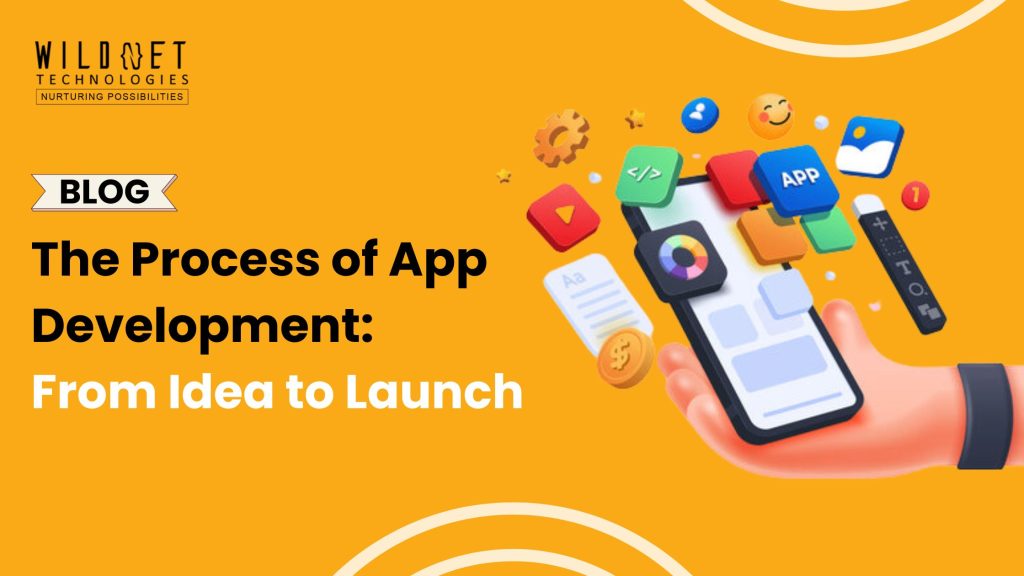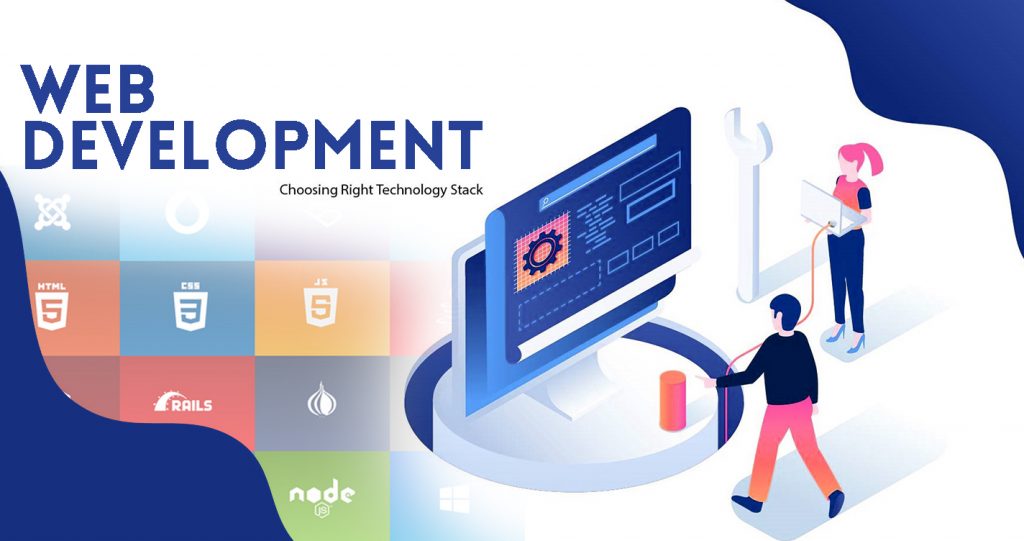Did you know our daily lives are made functional with 80 apps (average)? No right!
Believe it or not, apps like Uber, Airbnb, and Amazon are the best way to interact digitally from the comfort of your palms. People use them to seamlessly connect with their friends, family, and businesses. These apps portray a 24/7 store that provides services and products as per the customer’s requirements.
A Few Facts –
- 88 billion smartphone users (2024) and an expected 6 billion (2027)
- Time spent on phones: 4 hours and 37 minutes daily (global average) and 3 hours and 55 minutes (USA)
- 88% of this time is spent on apps
- Slower apps lose 70% of their users
- Apps with complicated and/or multiple steps lose 67% of their users
- Faster battery-draining apps lose 49% of their millennial user base
It is evident from the above facts that a mobile app is a must for every business! But not just any mobile app; it needs to be fast, simple, battery-saving, and simply the best!
The question is how to develop a successful App?
App Development Process
Now that you know the significance of a mobile app, let us help you with its development process!
1. Start by solving a problem
We know you wish to create an app that is world-recognized, but you need to start small.
First, focus on a problem, solve it, learn from the feedback gained, and then make this solution commercially viable. Once the solution is marketable, envision an app that will not just provide this solution, but could potentially revolutionize the market. Imagine the impact your app could have, and let that drive your development process!
2. Brainstorming about the app
You need to think about the idea of the app and its target audience. Then filter in,
- the business problems faced,
- find solutions to them,
- add probable features and functionalities,
- factor in the scalability,
- estimate the cost involved, and
- finally, chart out the ROI possibilities.
3. Studying the market and your competition
The more you know, the better, so take your time to conduct market studies and research to find out;
- Best possible UX and UI,
- Potential demand for your offerings,
- Serviceable locations (as per you and your targeted audience),
- Your competitors (pricing, services, unique selling points, or USPs), and
- Value proposition (that is being provided by your competitors).
Also, find out if there are any benchmarking possibilities for your offerings, understand the current benchmarks, and keep them handy for your testing, later.
4. App Development Methods and Team
Choose between the best. There are two app development methods that can be followed:
– Agile Development Methodology: It is a project management approach that involves a set of rules and standards with which the development process progresses. Agile methodology breaks the software development life cycle (SDLC) into phases and focuses on continuous sprints, collaboration, feedback, and improvement. Teams follow a cycle of planning, executing, and evaluating. It is new and allows flexibility. It has five phases:
- Ideation
- Design and Development
- Testing (A/B)
- Deployment
- Operations
– Waterfall Model: Just like a waterfall, every phase in the development process results in a milestone for the next step. It is older and rigid. It has five phases:
- Requirements
- Design
- Implementation
- Verification
- Maintenance
It is advisable to go with Agile Methodology.
App development teams are of three types:
- In-house developers are full-time employees of your company who work exclusively on your app. They are the most reliable option, ensuring no data leaks and providing dedicated support. However, not everyone can afford to have in-house developers. You might not want to start an app development branch due to your lack of prior experience with it.
- Contractual developers are most handy with their latest tech and tool expertise, niche exposures, and cost savings. With proper NDA, clear communication, and set milestones, they are the best solution now!
- Freelancers are good for basic apps and are especially beneficial when there are budget limitations. If a reliable and trustworthy freelancer is chosen, the resultant apps are good but scaling the app could be an issue in the future!
5. Fine-tuning and polishing the app idea (Discovery Phase)
With the data you gathered in the market analysis, you can relate to what your competitors are offering, and now you can speculate and calculate the possibilities that will make your app superior.
Such as,
- What can be done better in your app?
- How can it be done?
- Which latest tech, tools, and AI are being used in apps?
- Which of them can be integrated into your app?
- How can your app development and handling become affordable?
- How will this app become a worthy resource for ROI generation?
Have an App idea ?? Transform your app idea into reality with Wildnet’s 7 days Discovery Phase plan.
6. App design and prototyping
This is where your app starts taking physical shape. The development team will,
- Create a software requirement document (SRD), which will have all the app details and specs.
- Create wireframes to show you how each page or wireframe will look in the app.
- Once the wireframes are finalized, they will make a prototype or MVP of the app.
- The user interface (UI) design gets modified as per your feedback.
- Finally, MVP, or minimum viable product, is developed.
MVPs are not just the most basic version of your app, they are the foundation of its success. They have standard features, functionalities, and platform coverage, and they are your first step towards a fully-fledged app. So, embrace the MVP and let it be your stepping stone to success!
7. Funding and Development
MVP is your key to unlocking investors’ interest and their pockets. Use it wisely!
Development happens in phases (as conveyed earlier in step 4), starting from UI (design and wireframes), shaping into a prototype, and finally manifesting into an app!
This app will have all the requested functionalities and features, becoming the custom solution for the targeted problems. It will also be scalable, which means it can handle excessive workloads and adapt to changing circumstances. This is an important consideration in app development, as it ensures that your app can grow with your business and continue to meet the needs of your users.
8. Testing
The app needs to undergo rigorous testing, testing each an every feature is required which happens in four modes:
- Manual testing is mostly local and happens internally in the development team.
- Performance testing helps in benchmarking your app.
- Security testing finds out possible vulnerabilities and closes them.
- User testing helps in checking the functions, compatibility, and usability of the app with the help of beta testers.
9. Launch, Maintain and Scaling
After rigorous rounds of testing, the app is ready to be launched!
Launching the app happens in four stages:
- Attracting users via teasers, social media, free demos, and more.
- Getting their feedback is vital because it helps your app become better.
- Once you start acting on every piece of feedback, the user ratings will increase, which will boost your downloads. You can also share the user feedback as testimonials. This will boost your brand and get it recognized!
- Revenue generation becomes feasible with in-app purchases and advertisements.
If you’re looking for a reliable and experienced partner to guide you through the app development process, consider Wildnet Technologies. With our expertise and commitment to quality, we can help you build the best app for your business.
Your app will need at least six months to 1 year of maintenance and support from the development team to ensure the rectification of bugs and the addition of other functionalities.
Scaling of the app happens at set milestones, be it user downloads or revenue generated. You can opt for contractual developers to scaling your app in low cost.
Post-launch activities for your app:
- Draft a press release: Crafting a press release for your app is a cost-effective way to capture the attention of online news outlets and magazines.
- Explore paid marketing avenues: Allocate a portion of your marketing budget to paid advertising, which can significantly enhance your app’s visibility. However, the plethora of paid marketing options available can be overwhelming. You can read about impactful paid strategies in our other articles.
- Reach out to your pre-launch email subscribers: After the launch, ensure to notify your pre-launch email list about the availability of your app. Keep your audience updated through email communication.
- Engage in promotional efforts: Identify relevant forums, Facebook and Instagram groups/pages, subreddits, News forms and other online communities related to your app’s niche. Rather than solely promoting your app outright, engage in discussions and provide value. Sharing your app development journey in these communities can cultivate an eager audience anticipating your app’s launch.
- Adhere to the app launch timeline: Follow a structured timeline for post-launch activities, including app store optimization, pitching your app to Apple for featuring, and issuing press releases at strategic intervals.
Looking for a Marketing team for App Store Optimization – Contact us NOW!!
To develop a flawless application, you will need the development team to help with the process, as well.
Thus, either have in-house developers or contractual developers if you foresee scaling opportunities during the initial launch phase itself!
We at Wildnet Technologies understand the anxieties that might arise in the minds of our clients. So, we offer both development teams (project basis) and contractual developers and let you choose accordingly!
We have been in the IT industry for 17+ years, catering to 2500+ clients and delivering 12,000+ projects to their satisfaction.
A few of our accolades,
- Clutch.co recognized Wildnet Technologies as Top mobile app developer
- GoodFirms.co recognized our tech resources
- TopDevelopers.co awarded us the Top Hybrid App Developer
- Wildnet Technologies is also recognized by Designrush, a trusted listing to find the best development agency for your next project.
Connect with us at info@wildnettechnologies.com and together, we will create the app of your dreams!






